What is it?
The technical specifications of the new Toyota Yaris GR Sport make for slightly concerning reading.
Here is a city-friendly hybrid supermini that has been done up in sporting finery inspired by Toyota’s Gazoo Racing motorsport team. Hmm. Sounds very much like we could have a case of confused identity on our hands here.
You see, this isn’t just a supermini with a bodykit and a smart new set of 17in alloys. There are mechanical changes, too. Not only does this particular strain of Yaris come equipped with Sachs Performance dampers similar to the ones you’ll find in the rabidly excellent Yaris GRMN hot hatch, but it also has a new solid anti-roll bar for increased rigidity, while its ride height has been dropped by 11mm.
Admittedly, one side effect of these modifications is that the GR Sport is quite a sharp-looking thing. But another could be that it's incredibly firm - which brings us back to that aforementioned identity issue.
Were the GR Sport packing the same Lotus-tuned, supercharged 2ZR-FE four-cylinder motor as the GRMN under its bonnet (or even a slightly less powerful but similarly exciting engine, for that matter), that potential firmness wouldn’t be so much of a concern. But with a sum total of 98bhp being developed by the GR Sport’s 1.5-litre petrol-electric hybrid powertrain, all sent to the front wheels by an e-CVT, plus economy figures of 56mpg and CO2 emissions of just 89g/km, it looks like this could just be an uncomfortable but frugal city car.

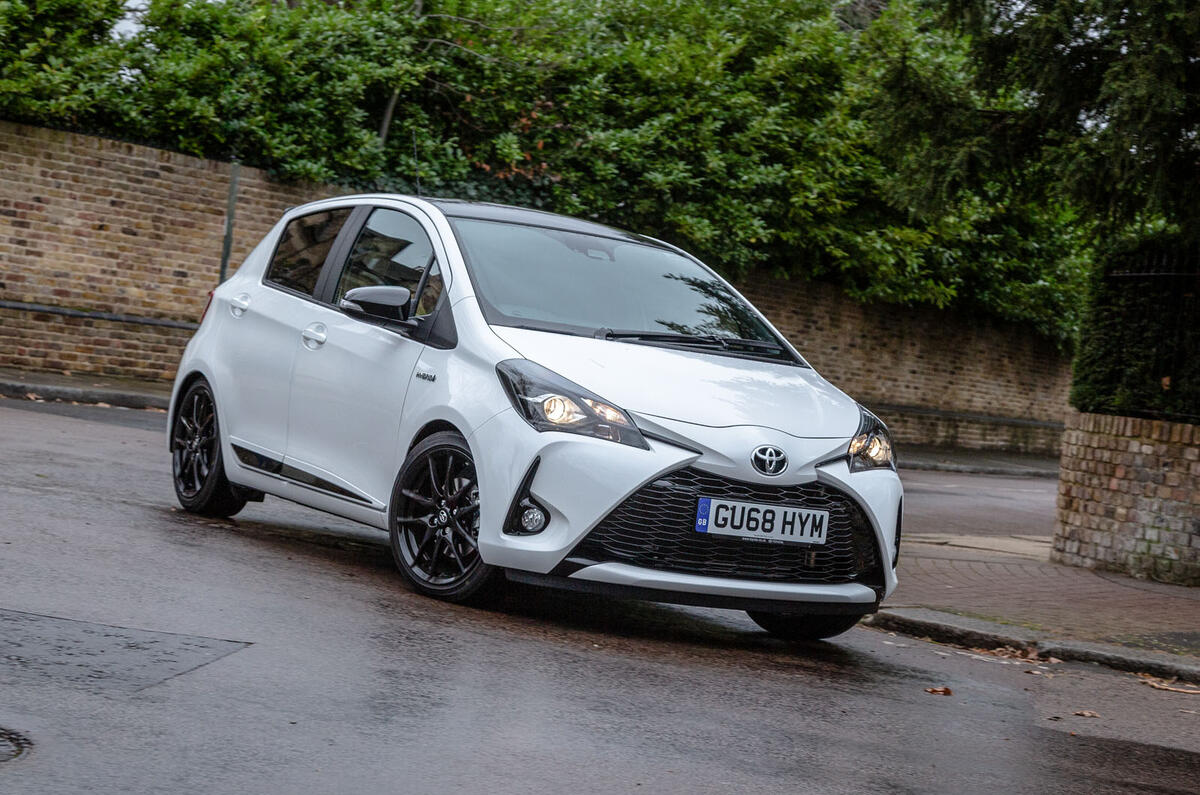

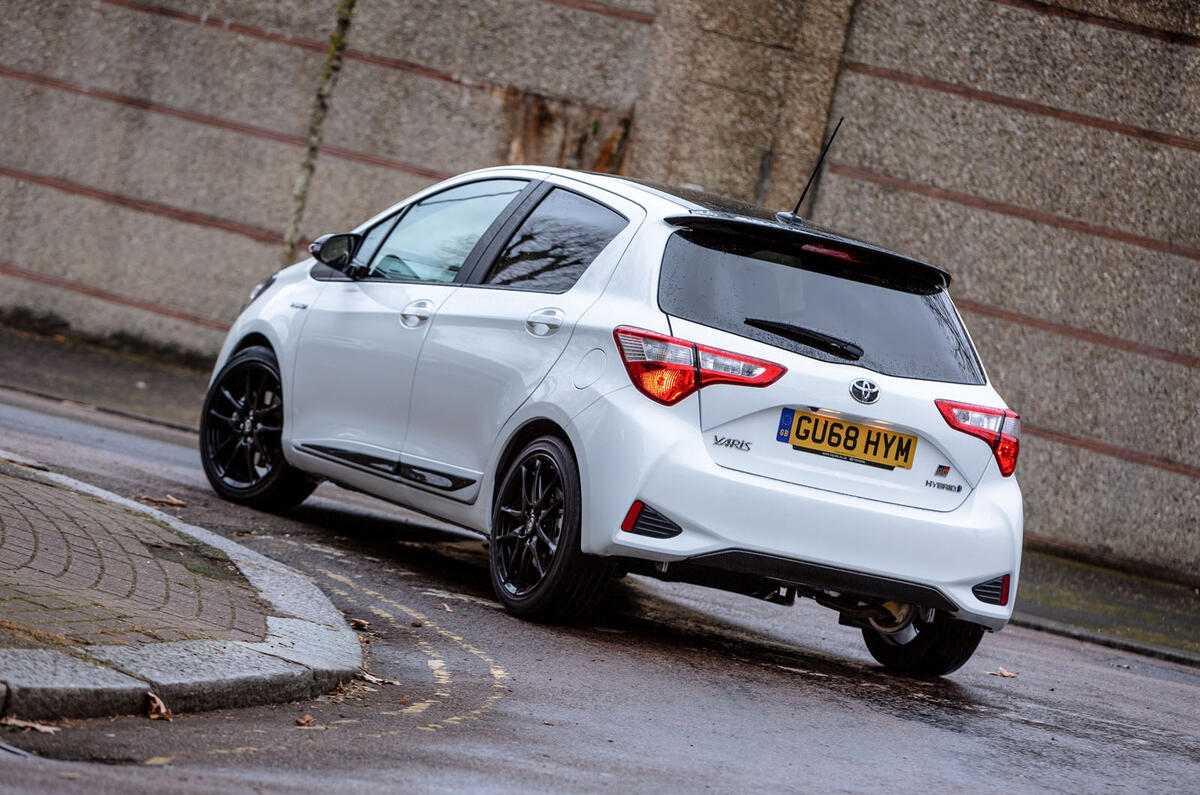
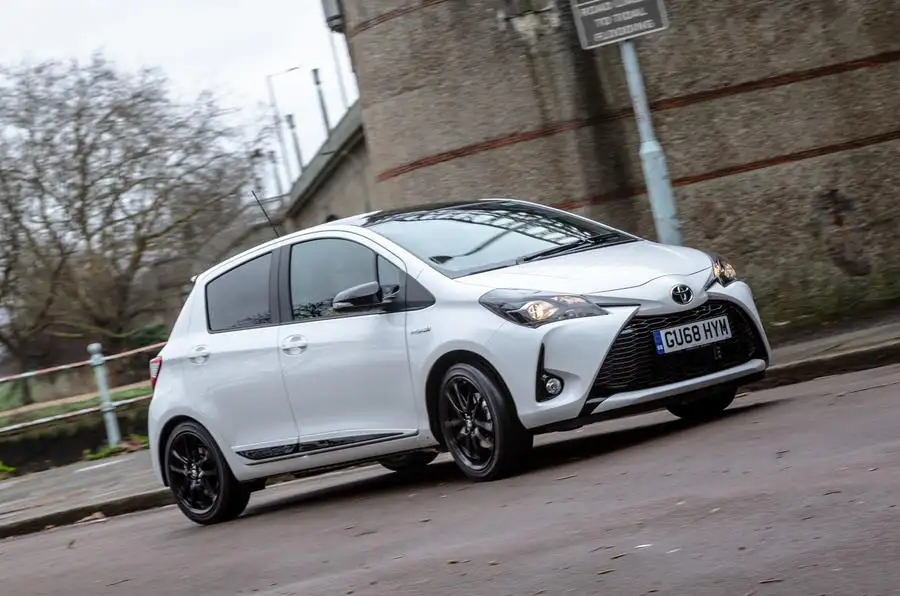
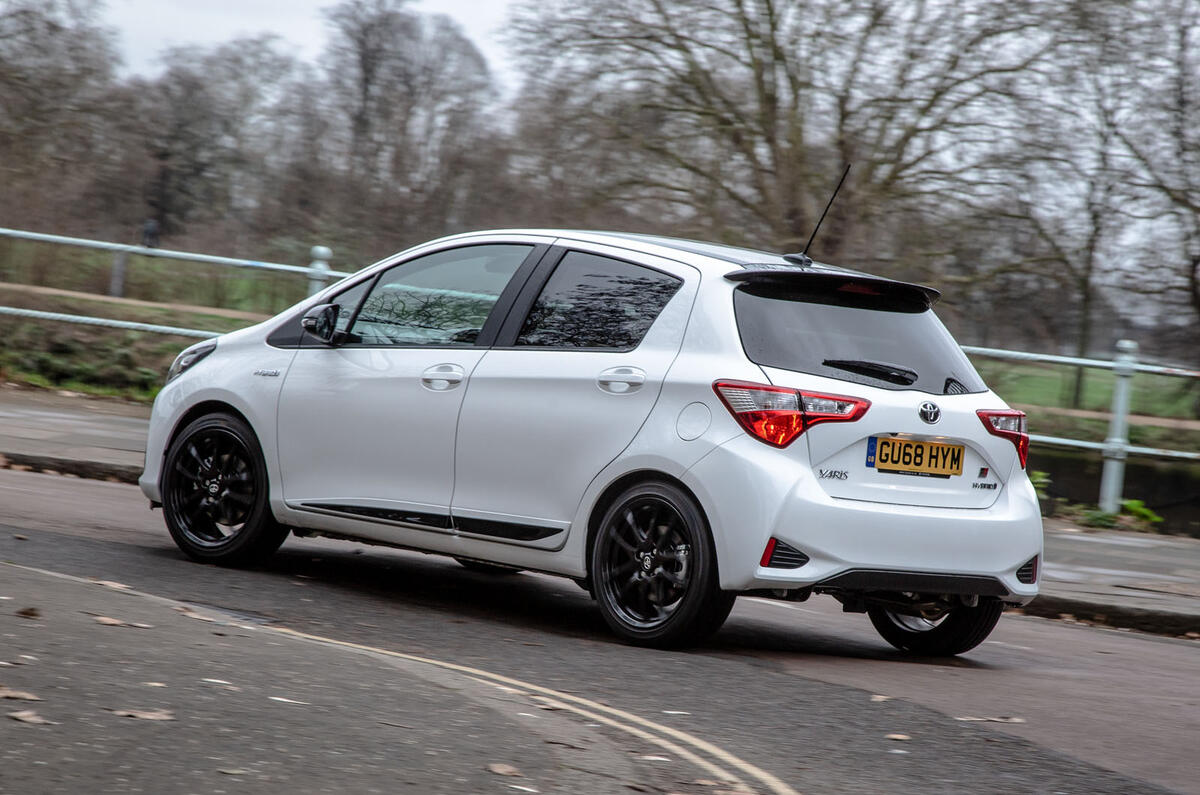
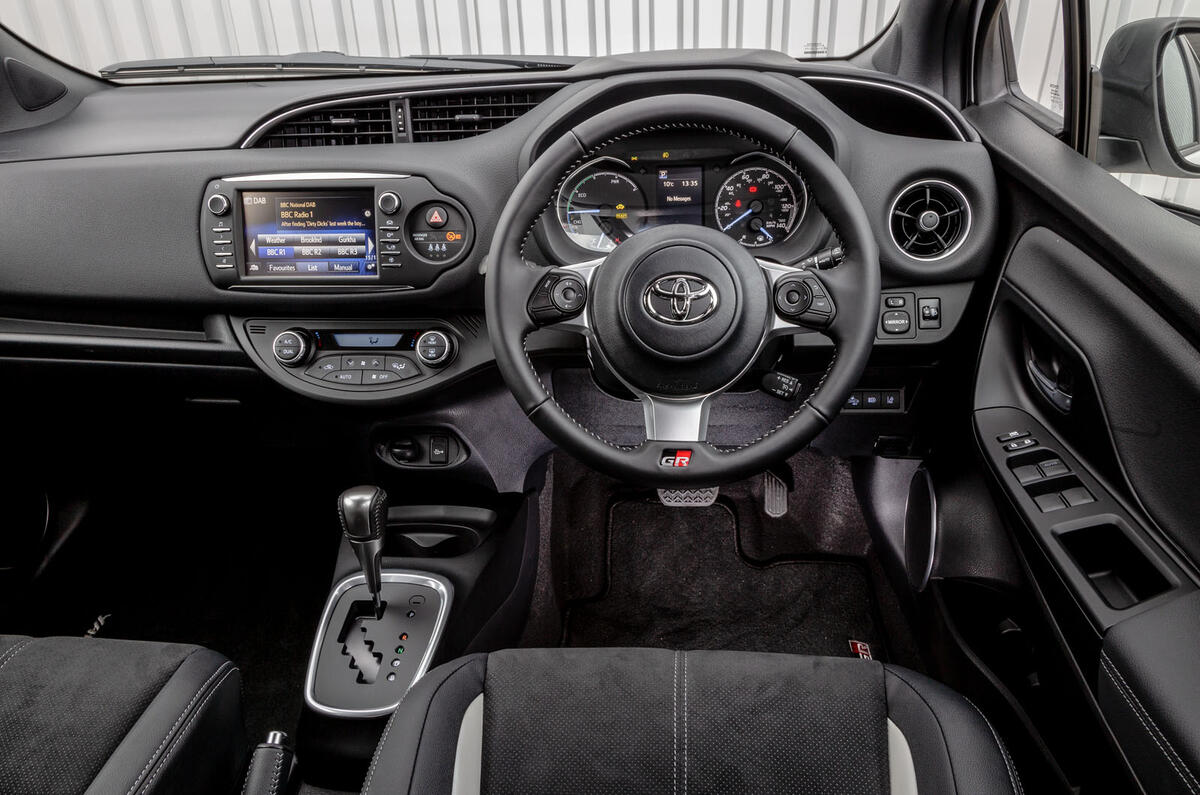
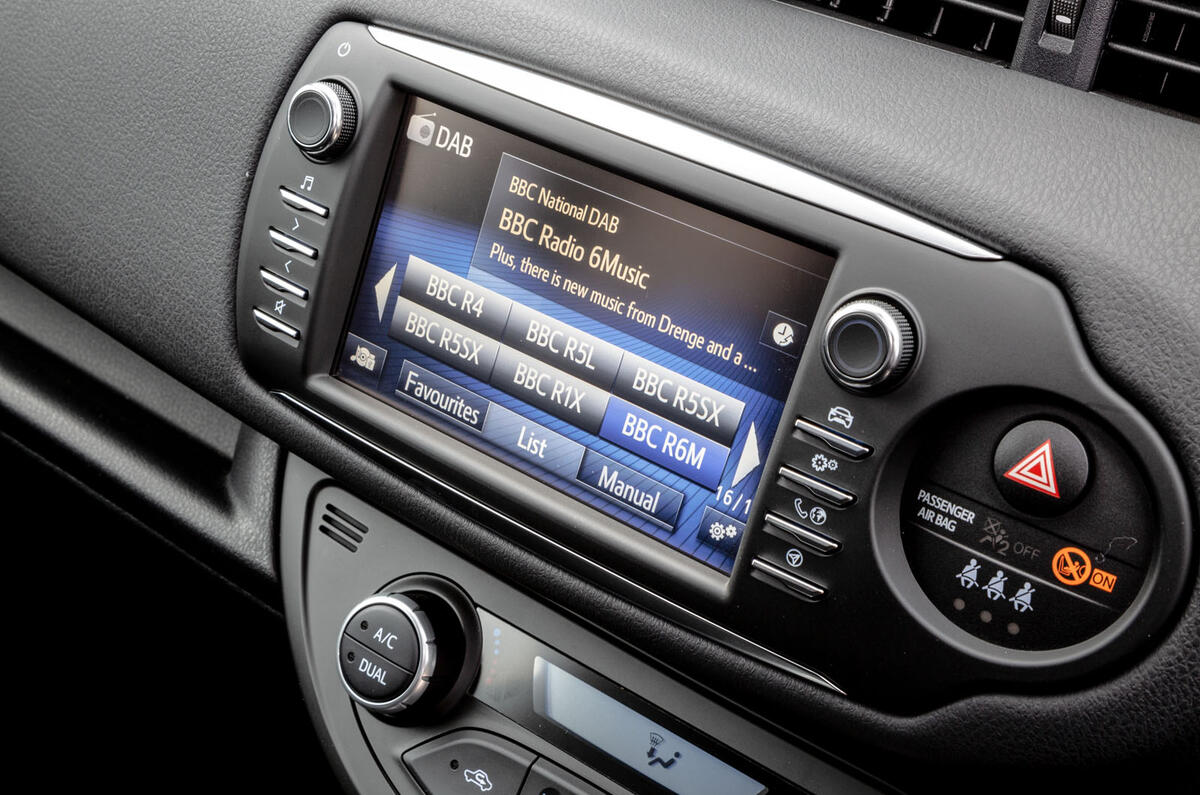
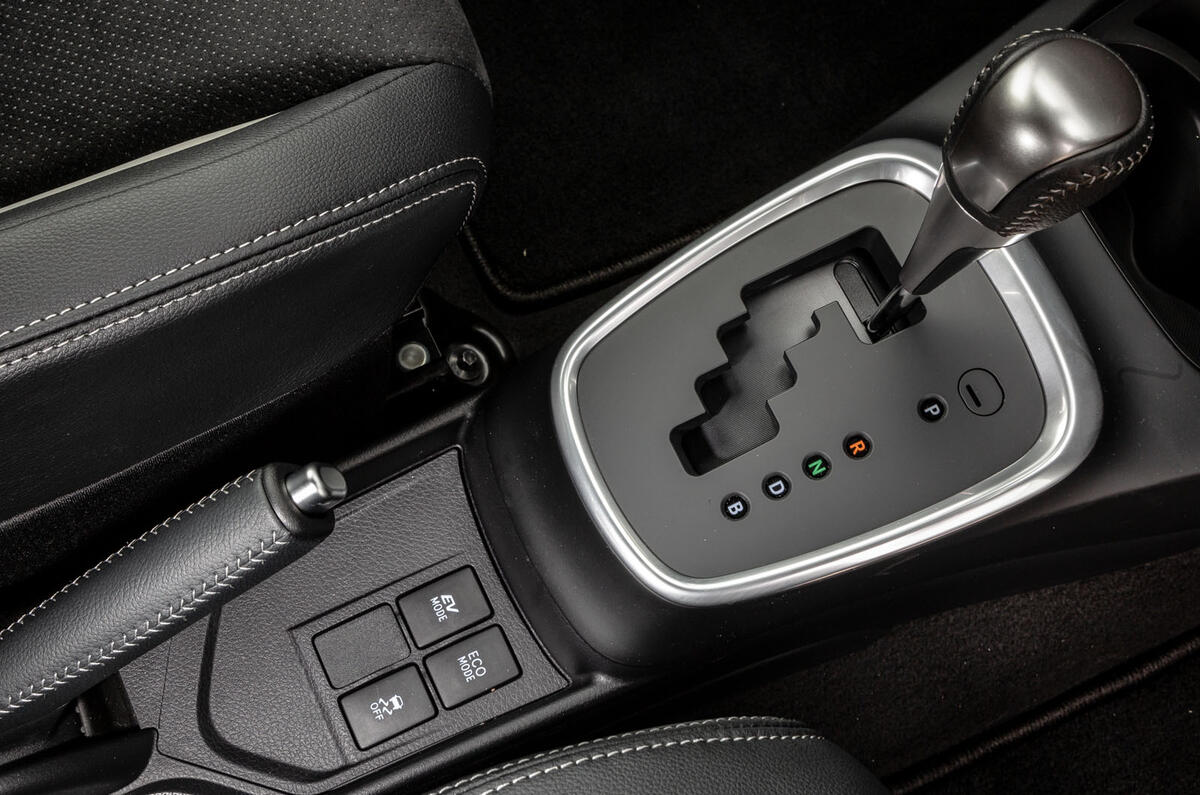
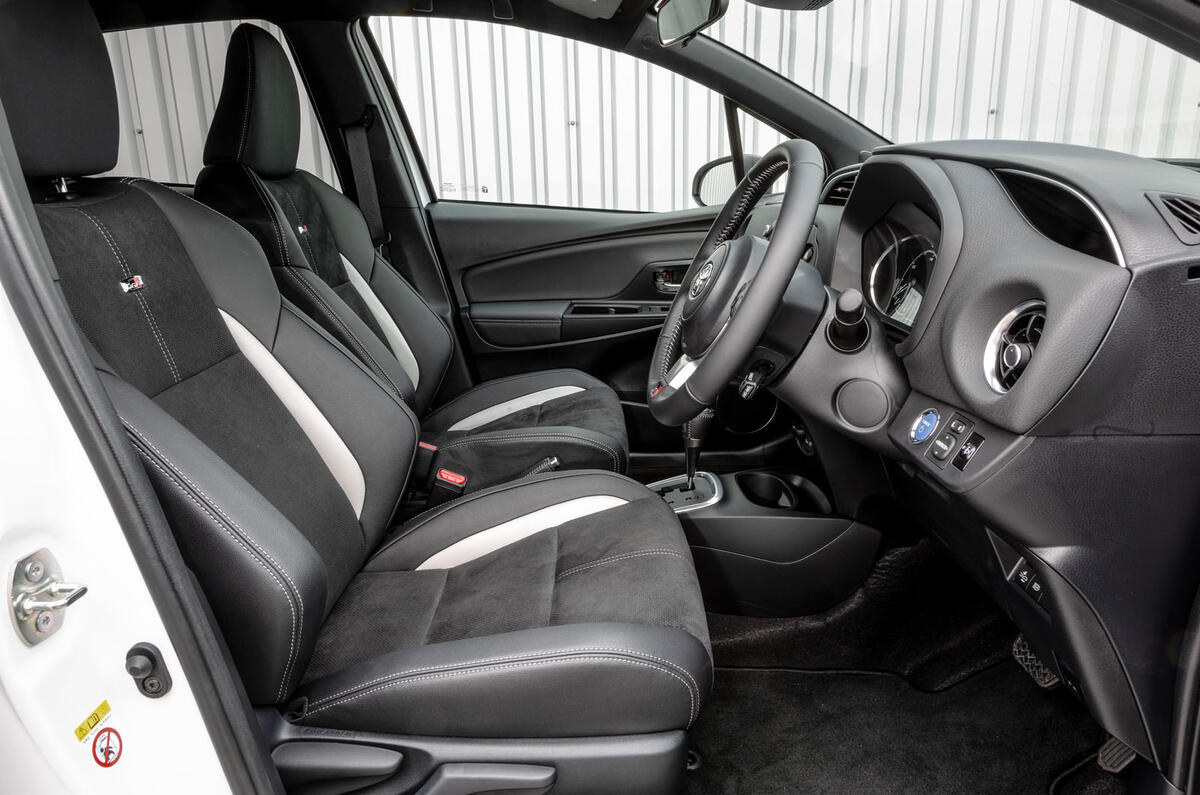
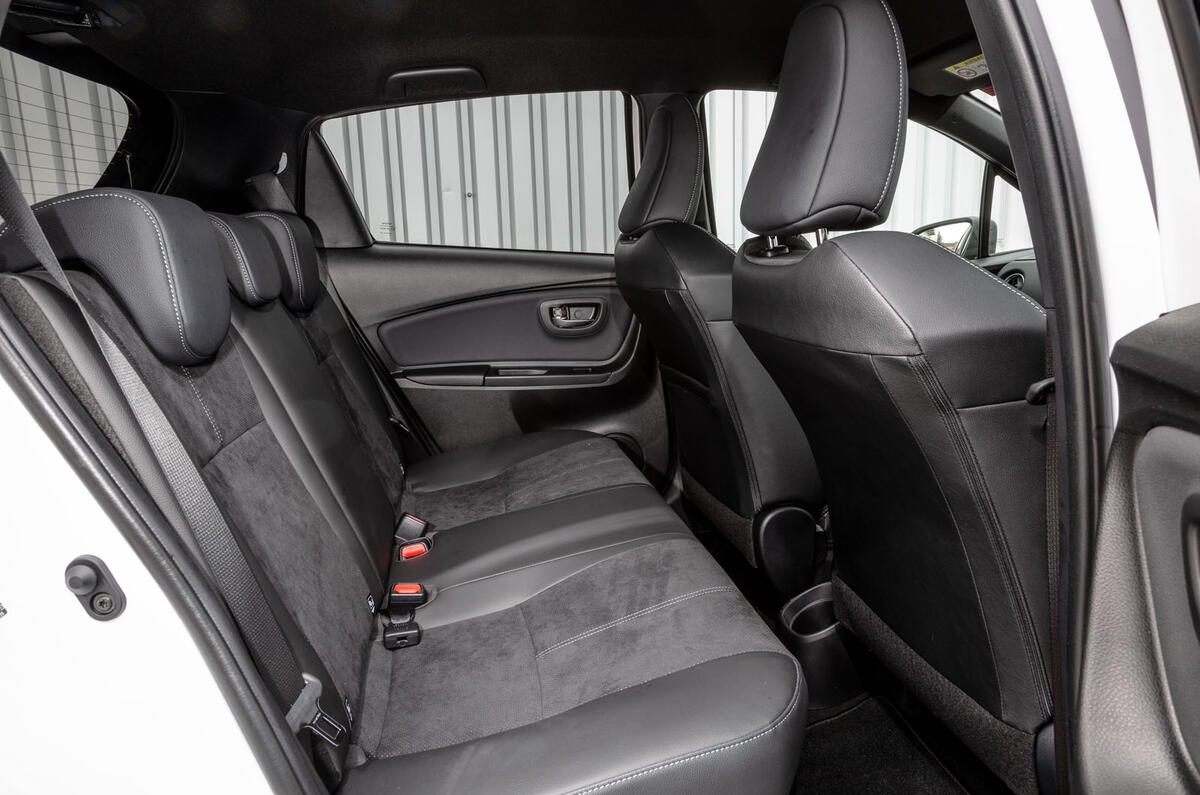
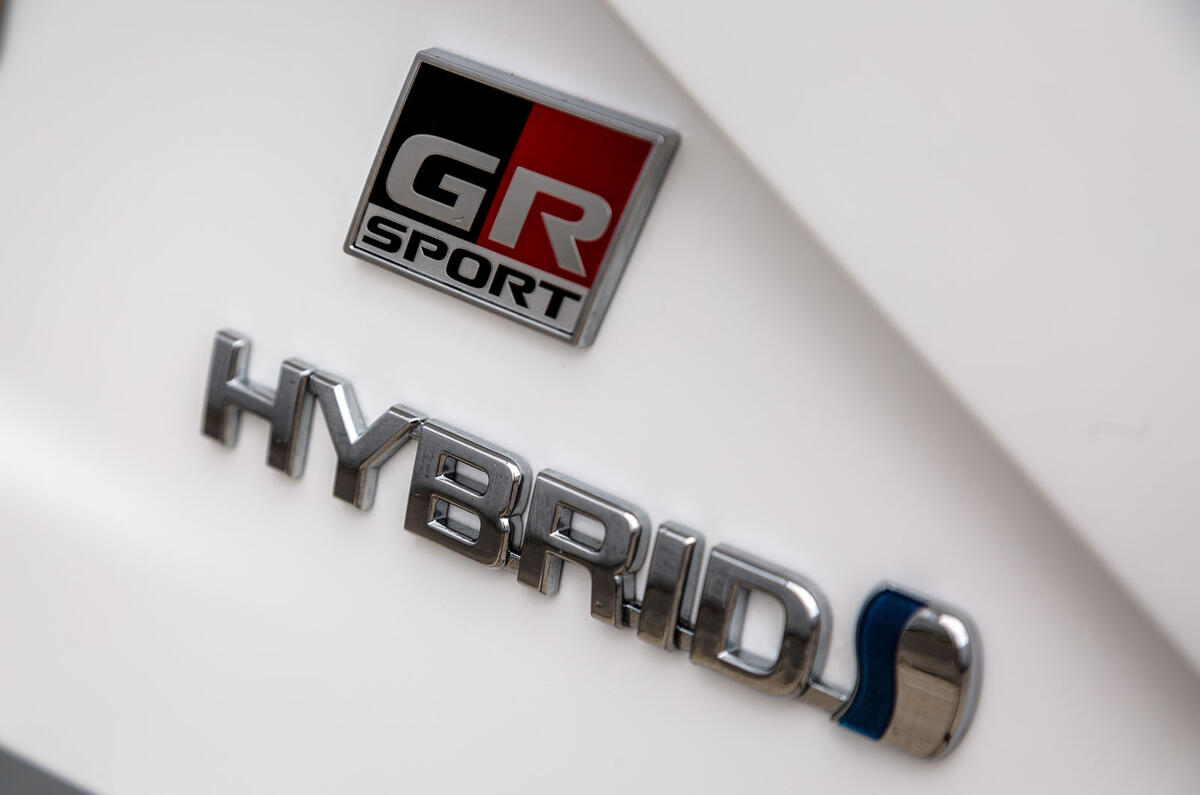
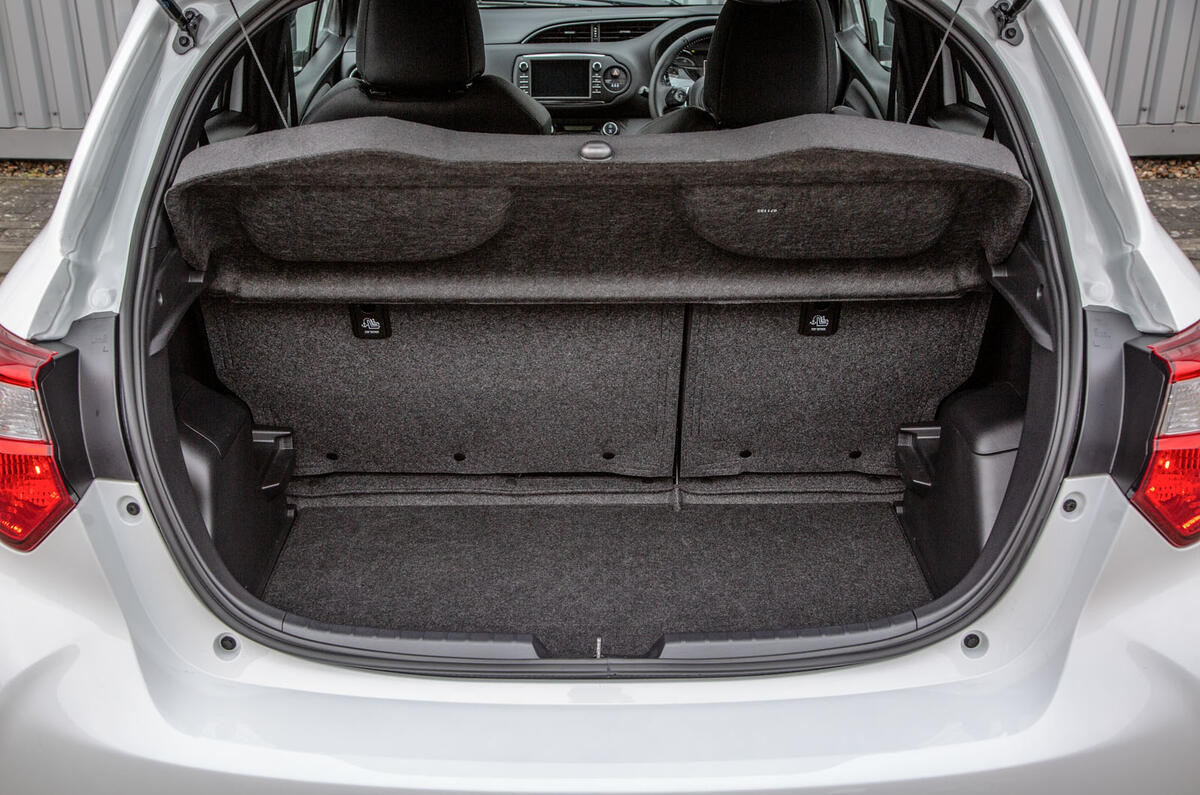





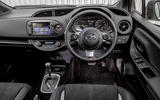






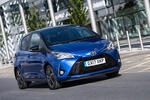
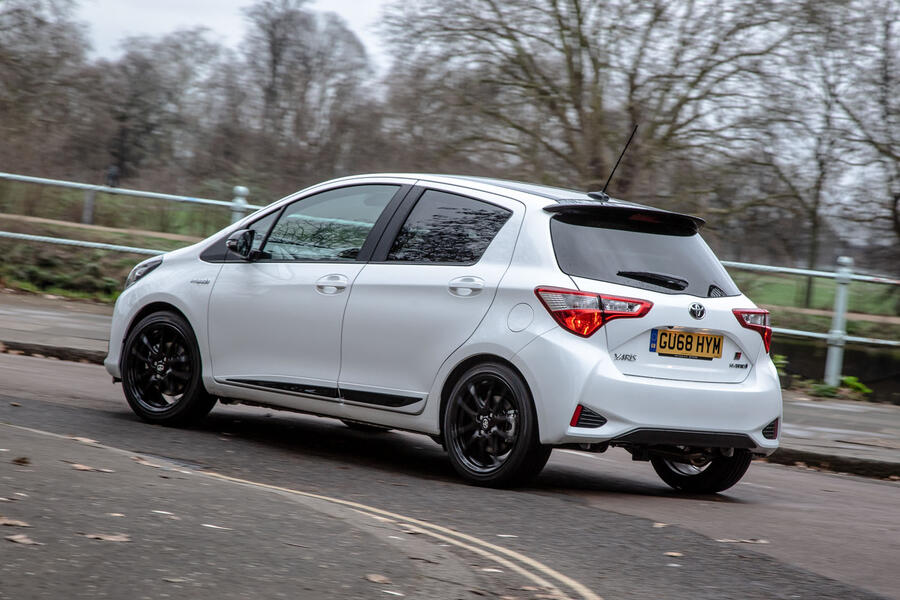
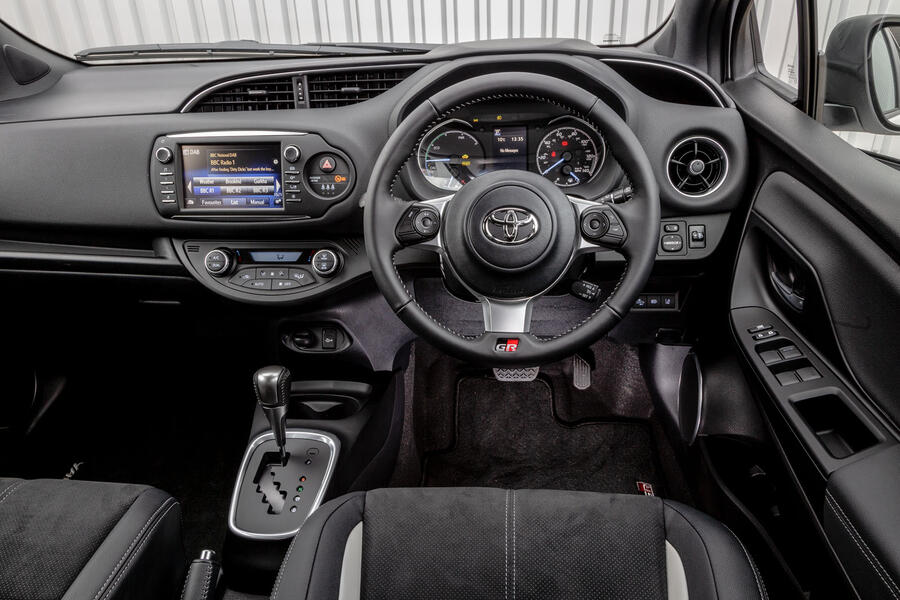
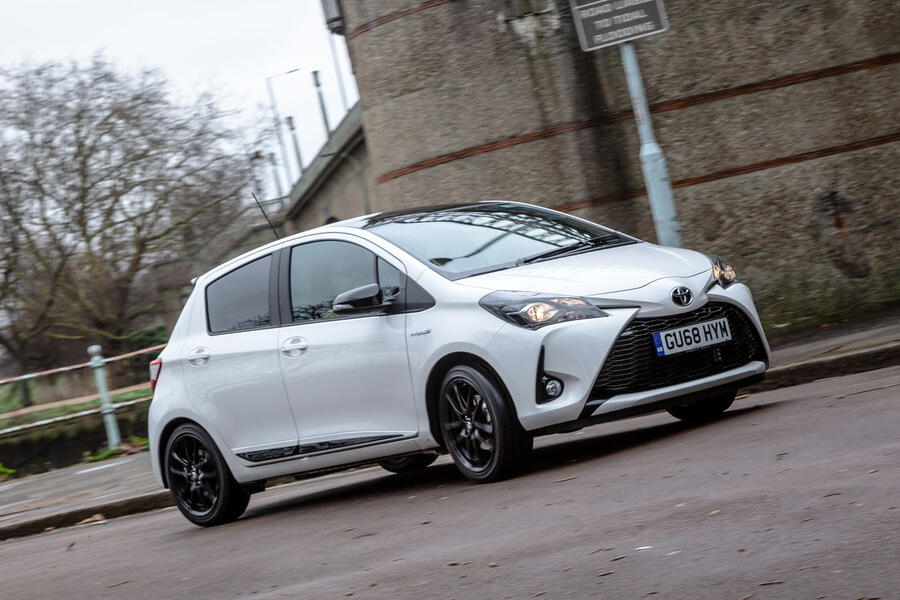
Add your comment